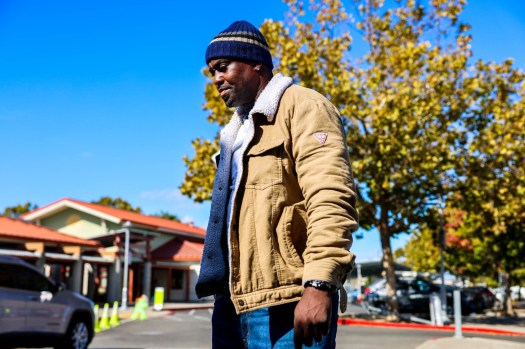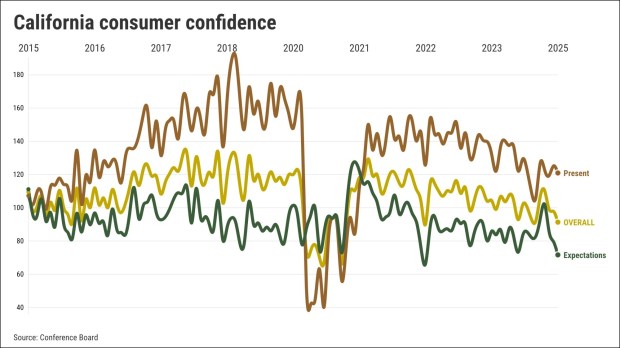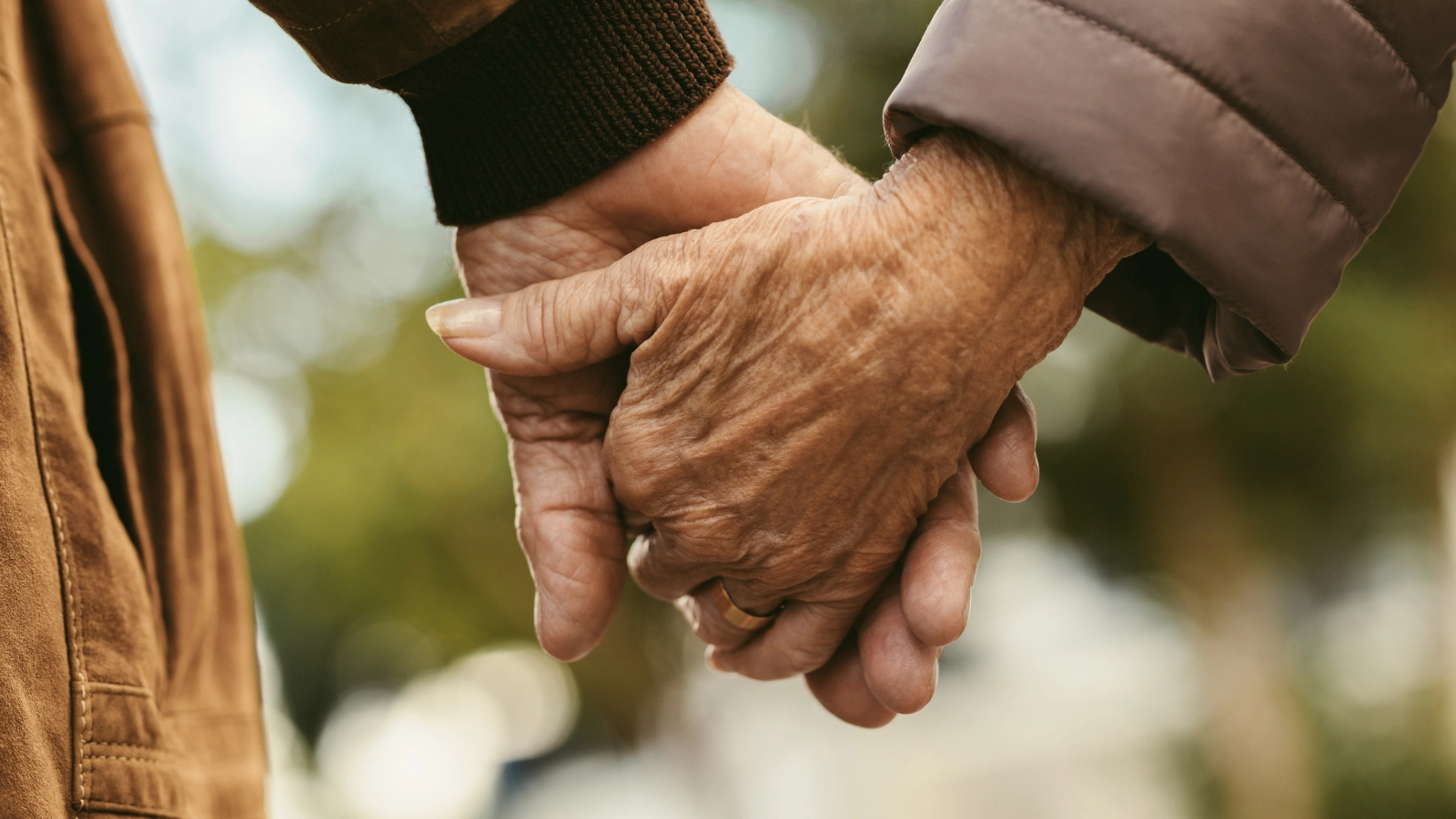At his Oakland home within earshot of the Coliseum sports arena and the BART tracks, Michale Jones said he usually sleeps just five hours each night. On top of the periodic rattle of the transit trains and roar of sports fans, there’s the intrusion of illicit activities that keep him awake.
“I always hear a lot of the gunshots, a lot of music playing, side shows and lots of other stuff like that at night and even midnight every day,” Jones said.
Jones might get a little relief Sunday when daylight-saving time ends at 2 a.m. across most U.S. states and clocks “fall back” an hour to standard time, granting an extra 60 minutes to sleep in.
But it may not prove much of a break for Jones and his neighbors, whose ZIP code stood out as having the highest percentage of “short sleep duration” in the Bay Area at 41.2%, according to the U.S. Centers for Disease Control and Prevention’s latest 2024 PLACES: Local Data for Better Health report.
More than one in three American adults say they do not get the recommended amount of sleep, which the CDC defines as at least seven hours a night. Anne Wheaton, deputy associate director for science at the CDC Division of Population Health, said the national average is 37%, while in California it’s 35%. Experts say reasons can range from long commutes to health issues and noisy neighborhoods.
“Environmental noise may play a role in short sleep duration,” said Clete Kushida, a neurologist and psychiatry and behavioral sciences professor at Stanford University who is director of the Stanford Center for Human Sleep Research.
Jennifer Martin, a professor of medicine at the David Geffen School of Medicine at UCLA and former president of the board of directors for the American Academy of Sleep Medicine, said “California is pretty high” among the states “in terms of residents who don’t get enough sleep.”
“California is not the best-slept state in the United States, and there are a lot of people in California who don’t get enough sleep,” Martin said.
Jones’ ZIP code 94621 includes Oakland International Airport, the Coliseum and adjacent Arena and the Coliseum BART station. Other Bay Area ZIP codes with what Wheaton said were “statistically similar” levels of sleeplessness, the data show, were located in other parts of Oakland, San Francisco, Richmond, Pittsburg, Antioch and San Quentin.
So where are Bay Area residents resting well? The data show the ZIP code for Portola Valley in San Mateo County, home to wealthy investors such as Vinod Khosla and late Sunset magazine publisher Bill Lane, has the lowest percentage of residents reporting short sleep duration, just 23.2%.
Fiona Barwick, a clinical associate professor in the psychiatry and behavioral sciences department at Stanford University, said wealthier communities like Portola Valley can be quieter and more restful.
“You don’t hear gunshots at night. So you have a very secure and stable environment to sleep not only within your community but even within your household,” Barwick said. “If you’re living in an unsafe, insecure, unstable environment with fewer resources, and fewer resources not only maybe in your own household, but within a larger community, you can’t afford proper policing or stop lights, and then sleep is likely to be worse.”
Wheaton said lack of sleep can be caused by a wide variety of sleep disorders, such as insomnia, as well as poor sleep habits, including irregular sleep schedules and use of electronics near bedtime. Martin added that a factor for many in the Bay Area not getting enough sleep is work commute times.
“People tend to live in areas that are not particularly close to their jobs, and people often sacrifice sleep for their commute times in the morning,” Martin said.
Jones, who’s lived in the Bay Area’s most sleep-deprived ZIP code his whole life, has plenty of neighbors who share his woes over nighttime noise.
Angel Martinez, 35, a lifelong resident of that Oakland neighborhood with her family, said she usually sleeps six hours at night. Martinez said she can always hear the BART station and airplanes, even though it does not wake her up too much at night.
“Everyone living in here, their sleep is just okay, not the best,” she said. “Everyone, even me, is just used to the noise to sleep at night, sadly.”
Whether Sunday’s time change will offer a little relief has been a matter of debate.
Nearly 60% of California voters in 2018 approved a ballot measure that allows the state legislature to change the daylight-saving time period by a two-thirds vote if the changes are consistent with federal law. So if a supermajority of lawmakers approves, the state could either eliminate daylight-saving time or, with the help of Congress, extend it year round.
Other states have adopted similar measures, including Florida, where Republican Sen. Marco Rubio has repeatedly introduced the Sunshine Protection Act to extend daylight-saving time year round. However, as of October, it remained parked in a committee.
But while sleep experts like the idea of discontinuing the time change, they’ve generally favored keeping standard time.
“The American Academy of Sleep Medicine and all medical and scientific organizations that have spoken out on this topic believe that we should stop daylight-saving time and stay permanently on standard time,” Martin said. “It’s better aligned with people when we’re on standard time than daylight-saving time.”
However, outdoor enthusiasts and youth sports advocates have argued for daylight-saving time because it allows teams in the spring and fall to compete in the afternoon after schools let out before it gets dark.
Kushida isn’t convinced the extra hour of sleep from daylight-saving time ending offers much relief.
“Individuals with sleep-wake rhythms strongly linked to day and night circadian cycles may have difficulty adjusting to daylight-saving time,” Kushida said.
Jones said that “it’s good to have an extra hour to sleep, but I definitely need one week to adjust the time change.”
Residents of the Bay Area’s most sleepless neighborhood are looking at other solutions for peaceful rest.
“Just more housing and police patrols,” Jones said.
Bay Area News Group photographer Ray Chavez contributed to this report.
Note: Thank you for visiting our website! We strive to keep you informed with the latest updates based on expected timelines, although please note that we are not affiliated with any official bodies. Our team is committed to ensuring accuracy and transparency in our reporting, verifying all information before publication. We aim to bring you reliable news, and if you have any questions or concerns about our content, feel free to reach out to us via email. We appreciate your trust and support!




